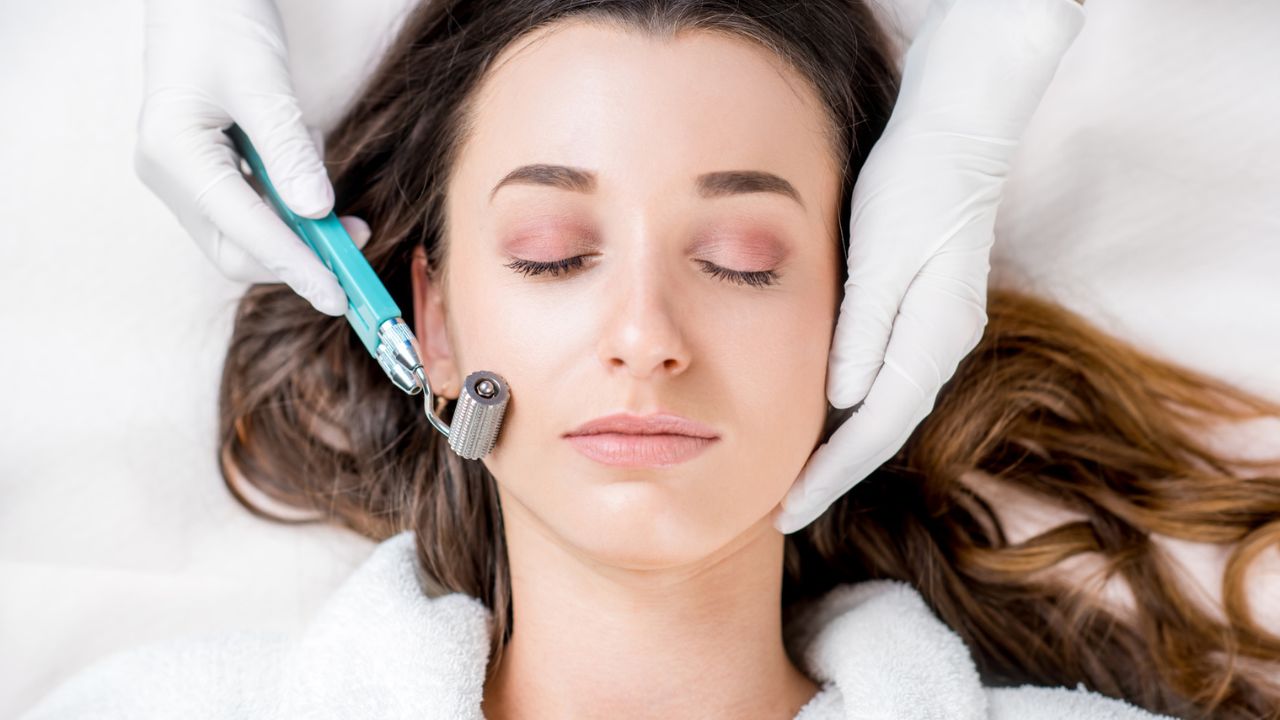Does Vitamin C Help Acne?
Acne is a skin ailment that affects a large number of people and may be very frustrating because it can leave scars long after the breakout has cleared up. Acne is a severe and chronic skin condition that, on top of causing emotional stress, can also cause physical discomfort.
And despite the fact that acne can present itself in various forms, from blemishes to blackheads, there is one component that many individuals are turning to control their acne, which is vitamin C.

Let’s take a look at the reasons why vitamin C is so essential for good skin, as well as the various ways in which you can experiment with using it based on the type of skin you have. We will assist you to understand why vitamin C is effective, as well as address any queries you may have regarding the use of topical applications vs supplementation.
Does vitamin C help the skin?
Because of its potent antioxidant properties, vitamin C is an indispensable component in anti-aging skincare products. Your skin is shielded from the damaging effects of oxidative stress by vitamin C, which also encourages the formation of collagen. In other words, it helps your skin retain its youthful appearance.
However, vitamin C can also reduce inflammation, and it is essential to keep this property in mind when attempting to comprehend the potential function it may play in your acne. You are the only person who has your particular skin type and acne presentation. In addition, there are a variety of approaches to treating acne scars and reducing the appearance of acne marks that you can try utilizing vitamin skin.
What is acne?
Acne is a skin condition that is characterized by inflammation and can manifest in a number of different forms, ranging from tender, deep whiteheads to little, red pimples. Although nutrition, stress, and other external factors can play a role in acne breakouts for certain people, the following are the most common reasons for acne:
- Skin that is very greasy.
- Genetics.
- Hormonal changes are associated with puberty, pregnancy, or the menstrual cycle.
- Hormone-containing medications, such as birth control.
When oil-producing glands and hair follicles get blocked, a condition known as acne can develop. When the glands and follicles of healthy skin are functioning properly, they perform an intricate dance that allows the skin to clean itself.
However, when acne is present, these oil and dead skin cells become trapped and clogged. Unfortunately, bacteria may grow and flourish in this setting because it is ideal for their reproduction. Inflammation of the skin is a result of the immune system’s response. Acne will manifest itself and will frequently leave scars after it has been cured. Here is where vitamin C can be of use.
Acne treatment with vitamin C
Acne of all different causes, including hormonal, fungal, and cystic, may respond well to treatment with vitamin C. If you have sensitive skin, you should approach the application of vitamin C in the same manner as you would any other new treatment: begin with a low concentration and gradually increase it until you find the optimal level for your needs. The following are some of the ways that vitamin C can assist in the treatment of acne.
Lowers acne scars
The fact that acne doesn’t go away completely even after treatment is probably the most annoying aspect of the condition. After the acne has been cleared up, the tissue will attempt to mend itself, and scars may occur as a result of this. Acne scars can benefit from vitamin C’s ability to lighten them over time.
Anti-inflammatory
Inflammation is your skin’s attempt to recover itself after it has been damaged. Acne, on the other hand, causes the skin to be inflamed on a persistent basis, and the chemical that is responsible for the inflammation works overtime.
Although additional study is required to determine the precise mechanism by which vitamin C soothes irritated skin, it is generally accepted that the vitamin works by interfering with the chemicals known as cytokines, which are responsible for the inflammatory response.
Boosts collagen
Inflammation is your skin’s attempt to recover itself after it has been damaged. Acne, on the other hand, causes the skin to be inflamed on a persistent basis, and the chemical that is responsible for the inflammation works overtime.
Although additional study is required to determine the precise mechanism by which vitamin C soothes irritated skin, it is generally accepted that the vitamin works by interfering with the chemicals known as cytokines, which are responsible for the inflammatory response.
Hyperpigmentation improvement
The condition known as hyperpigmentation is sometimes referred to as age spots, liver spots, and sun spots. No matter what you call them, the marks they leave on your skin might be various shades of pink, red, grey, or even black. The synthesis of melanin, which is the substance responsible for these colorful patches, can be inhibited by vitamin C. Your skin will have a tone that is more even as a result of this.
How to use vitamin C?
Vitamin C can be beneficial to your skin in a number of ways, the most important of which are applying it topically and ingesting it. Let’s have a look at the many ways that can be taken.
Topically
Vitamin C serums are highly concentrated, water-based treatments that are applied to the skin (or just specific problem areas) after cleansing but before moisturizing. You can choose to treat your entire face or only problem areas. Because of their high level of effectiveness, they have gained widespread use in the management of acne. On the other hand, if you have sensitive skin, you can find that serums aggravate your condition.
In that scenario, you could try using a face cream or oil on your face. These products have a lower concentration, can be used on various skin types, and frequently contain other supportive substances such as sun protection factor (SPF). You might also try a cleanser, which removes grime, dead skin, and other impurities from your face while also providing it with vitamin C treatment.
Vitamin C supplements
Vitamin C is well-known for being an important component of a healthy diet due to the numerous positive effects it has on one’s health. But are there any reports of vitamin C pills helping acne? In order to better understand the impact that vitamin C took orally has on acne, additional research is required. However, there is some evidence to suggest that higher consumption of vitamin C is associated with improved skin health in general, including a reduction in the appearance of wrinkles, protection against dryness, and anti-aging effects.
Because vitamin C is associated with so many other positive health effects, including it in your diet is not going to do any harm to you. However, consuming an excessive amount of vitamin C might result in stomach cramps, nausea, kidney stones, and other unwelcome side effects; therefore, you should consult your physician to determine whether or not taking supplements is the best option for you.
Consuming foods and beverages containing vitamin C confers a number of health benefits, including the following:
- Supported immunity
- Lower blood pressure
- Iron absorption
- Fights free radicals
- Lowered risk of stroke
Can vitamin C lead to acne?
Although it does not cause acne, vitamin C has the potential to irritate the skin. It is possible that some products will irritate your skin more than others, particularly if your skin is dry or sensitive.
It has been shown that vitamin C can induce redness and flushing in certain skin types; therefore, it is important to perform a test patch on your skin before applying it to your face, particularly if you are using a serum.
In addition, if you are concerned about producing a breakout, you should use an oil or a cream rather than a serum because they are less concentrated.
How to use vitamin C on acne
You should look for items that include L-ascorbic acid, which is the structure that vitamin C possesses. If you have dry or sensitive skin, you should look for serums that have lower quantities of at least 10% of the active ingredient. Keep in mind that serums should only be taken in very small amounts because even a small amount can have a significant effect.
Products containing vitamin C can be used with a variety of other products, including retinol. Many people have the most success when they use these products at various times throughout the day. As an illustration, you should put on your retinol cream at night and your vitamin C serum in the morning.
How fast does vitamin C clear acne?
The health of your skin will determine how effectively vitamin C works for you. Utilize it on your skin on a daily basis to get the highest possible outcomes. The majority of people start to see effects within a few weeks and show considerable improvement within a few months after using vitamin C to treat dark spots on their skin.
Other approaches to treating acne
You could discover that additional minerals like zinc, omega-3 fatty acids, and vitamins A, D, and E can help with acne. To maintain healthy skin, you can also experiment with your lifestyle choices.
Try some of the following:
Eliminate unhealthy foods. A breakout can be brought on by sugar, dairy, and other processed meals.
Have a restful night’s sleep. Acne outbreaks have been connected to inadequate sleep.
Don’t wash too frequently. Acne may be facilitated by thoroughly cleansing your face.
Get moving. Exercise improves circulation to the skin and reduces inflammatory responses throughout the body.
- Your Ultimate Guide to Travel Insurance for Adventure Sports
- A Guide to Renters Insurance for Pet Owners: Pet-Proof Your Policy
- Safeguard Your Future: Understanding Identity Theft Insurance
- Safeguard Your Event: Understanding Event Cancellation Insurance
- Everything You Need to Know About Critical Illness Insurance Riders
- Home Equity Loans vs. HELOCs: Which is Right for You?












